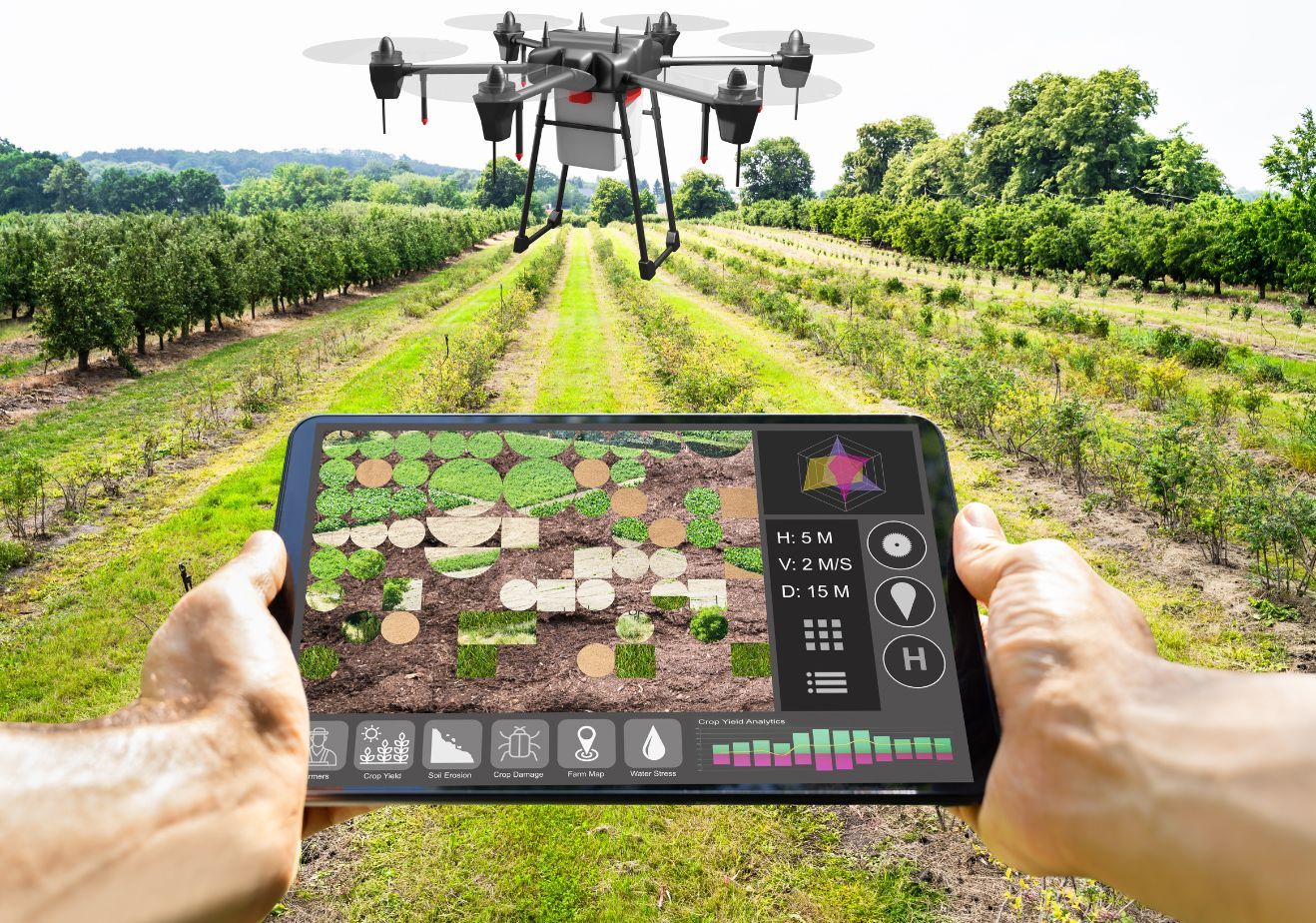What is Smart Agriculture?
Smart agriculture emphasizes the creation and use of knowledge through technology rather than just integrating information technology into agriculture. Information technology should make it possible for agricultural machinery and equipment to collect and evaluate data, and then finally, make certain judgments or prepare them semi-automatically. It is built on the development of big data technologies, the Internet of Things, satellite observation, connected data, and artificial intelligence throughout the entirety of the agriculture supply chain.
Background of Smart Agriculture:
Since the preservation of human history depends on agriculture, farming, or husbandry, these professions are essential. All things that were included in the linear chain of links that made up the human food chain are collectively referred to as agriculture. Since humans are the most intelligent species alive, our intelligence always drives us to develop and invent. This inciting event gave rise to the invention of the wheel, improvements in living standards and styles, the development of languages, life-spending tactics, and numerous other accomplishments. Major discoveries were made possible by mankind’s restless attitude toward innovation, which not only made life easier for people but also led to efficiency gains that increased output at the expense of worker expertise.
Given that the population is growing every day, agriculture must progress in order to maintain a balance between supply and demand. The need for food has increased in the previous fifty years and beyond. The use of contemporary technology over this essential resource for humans is intolerable in order to meet the criteria. Improved production as well as a reduction in intra-field and inter-field losses, which are prevalent in traditional approaches, are all possible with the employment of contemporary and innovative technologies. Due to the fact that man and agriculture are indissolubly linked, agriculture has always played a significant role in human society. This fact encourages the improvement and advancement of agriculture’s standard, ineffective, and time-consuming techniques. People’s lifestyles have altered as a result of the fast-paced world, emerging trends, and technological innovation. New emerging technologies are becoming an integral element of daily life. Smart homes and grids, smart cities, smart campuses, and smart farming are just a few of the comprehensively upgraded and sophisticated information and communication technologies that are assisting humans in saving time and obtaining quicker and more accurate results.
Due to their extraordinary efficiency, numerous technologies, such as ubiquitous computing, wireless networks, and RFID tags, are now having a significant impact on the agriculture sector. Additionally, a smart, efficient, and sustainable agriculture regime will replace the old approach in the next era of an IT-equipped world.
Researchers have been encouraged to contribute to smart agriculture by the improved highly efficient, cost-effective, sustainable, quick, and accurate findings. E-farming, smart mobilized fertilization, RFID tags for cattle monitoring, GPS field monitoring, sensor networks in agriculture, moisture and humidity detection, context-aware computing, precious farming, web of things, and livestock and warehouse management applications, among other technological endeavors, are some of the technological initiatives related to the smart farming regime.
The Benefits of Smart Agriculture:
How we produce food and its effects on the environment will determine how sustainably we can live in the future. Food production has undergone a revolution called “smart farming,” whereby farmers employ technology to increase harvest yields from already-available resources. A smaller environmental footprint and lower-impact agriculture are also being made possible by the development of smarter irrigation systems, improved soil composition, and smart monitoring systems. By 2050 or later, 70% of the world’s population will reside in cities, making it more and more challenging for farmers to obtain their crops.
In terms of output and economic expansion, technology is enhancing agriculture’s efficiency. The price of food, environmental sustainability, small-holder income, good security, and work and labor prospects are all directly impacted by this. The adoption of intelligent technology in agriculture has been outstanding and is especially helping to produce better grain varieties. A growing trend in farm management technology is the provision of accuracy, managerial simplicity, and security. Some of the benefits of technology in agriculture include the creation of supporting infrastructure, high-tech irrigation, more employment opportunities, increased food production and decreased food prices, nutrition and food use, access to land and other resources, and the efficient use of all resources.
All of these have an impact on how the economy grows for the average person. Utilizing the advantages of the internet and the digital economy for smart farming:
- Specialized knowledge in accordance with regional features like soil and climate.
- Delicious breeds and brands that reflect local peculiarities come in a vast variety.
- Products from safe and secure agriculture that meet consumer needs.
Some effects of Smart Agriculture:
- Scaling up a firm is made possible by the automation of operations made possible by cutting-edge technologies like robot tractors and water management systems controlled by smartphones.
- ICT tools assist in the transfer of seasoned farmers’ agricultural expertise to new farmers.
- Highly regulated agriculture will be made possible by using and analyzing sensing data to accurately predict growth and illnesses, among other things.
Contact:
If you have any questions, thoughts, or suggestions, please contact us or join our social media networks.
Email us: [email protected], [email protected]
Feel free to comment:
Your email address will not be shared with anyone.
Join our LinkedIn group
https://www.linkedin.com/groups/13943442/
Join our Facebook group
https://www.facebook.com/groups/agribusinesseducationandresearchinternational
You may read:
What is Agricultural Technology? – Agribusiness Education and Research International
What is Sustainable Agriculture? – Agribusiness Education and Research International
Organic Agriculture Introduction – Agribusiness Education and Research International
Crop Protection Market and Trends – Agribusiness Education and Research International
https://agribusinessedu.com/planting-system-and-sustainable-agriculture/
Hydroponic Cultivation Systems – Agribusiness Education and Research International
What is Permaculture? – Agribusiness Education and Research International






Leave a Reply